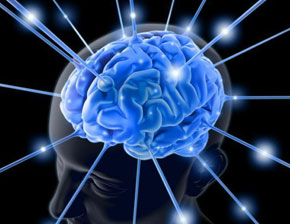Our brain and spinal column are the control center of our body. If these become damaged or altered, it can affect us in a variety of ways. With modern technology, our understanding of these effects is never-ending...
Neurological Disorders Brain Diseases
This article delves a bit into the categorization of Neurological Disorders Brain Diseases and other complications that lead to patients either unable to function fully mentally or physically, and sometimes losing touch of reality. There are several categories, and several Neurological Disorders Brain Diseases under each. It’s important to understand this categorization to get a good overhead picture of what’s really going on. Understanding the cause of Neurological Disorders Brain Diseases is always the best way to understand the disease, and that’s why this categorization is important, because it is based upon causative factors.
Diseases caused by Genetics / Heredity
These include several diseases such as:
- Huntington’s disease: This is a disease whose symptoms include essentially loss of motor function. Caused by the brain’s cells fraying away and losing function
- Muscular Dystrophy: This is in fact a group of diseases that all cause muscles to become weak, or patients to lose muscles altogether. Symptoms usually show up around the age of 30-40.
Diseases caused by incorrect development of the nervous system
There are several Neurological Disorders Brain Diseases that fall under this category. They affect the entire nervous system, including the brain, spinal cord and nerves. A common example is:
- Spina Bifida: Also commonly referred to as open spine, this is a birth defect that is found in unusually large numbers. This is caused by the spinal column being incorrectly sealed and closed. This may lead to fluid accumulating in the brain, or even loss of bowel control.
Diseases caused by degeneration
This is the most common type of Neurological Disorders Brain Diseases and houses two of the most commonly found brain disorders, which are:
- Parkinson’s disease: This widely found illness affects neurons. The most common symptom of Parkinson’s is a paralysis or stiffness of certain sections of the body.
- Alzheimer’s disease: Possibly the most widely known and often diagnosed of all Neurological Disorders Brain Diseases, Alzheimer’s is often considered one form of dementia. Leading to initially just memory loss, this disorder spirals into patients being unable to recognize people they know and their behaviour altering drastically. There is no known cure for this disease. Generally shows up around age 60 and onwards.
Diseases caused by problems in the Blood Supply to the Brain
The brain as an organ needs a large quantity of oxygen and blood to function correctly. The blood vessels not working as they should leads to a common emergency:
- Stroke: This is not so much a disease as an emergency that needs to be dealt with immediately. Patients exhibiting any of the symptoms including partial weakness of face, or any limbs or inability to speak or comprehend and a strong headache without any apparent cause must be taken to a hospital immediately.
Diseases caused by Cancer
Brain tumours can lead to several Neurological Disorders Brain Diseases, especially if the tumour is cancerous.
This covers some of the most common categories of brain diseases. There are of course other categories that some diseases fall under, but this offers a broad outlook on brain diseases in general.

- Home
- Acupuncture Therapy For Neurological Diseases
- Chronic Neurological Diseases
- Common Neurological Diseases
- Degenerative Neurological Diseases
- Equine Neurological Diseases
- Fatal Neurological Diseases
- Genetic Neurological Diseases
- Hereditary Neurological Diseases
- List Of Neurological Diseases
- Most Common Neurological Diseases
- Neuro-Infectious Diseases
- Neurological Autoimmune Diseases
- Neurological Degenerative Diseases
- Neurological Diseases In Children
- Neurological Diseases In Dogs
- Neurological Diseases In Horses
- Neurological Disorders Brain Diseases
- Neurological Genetic Diseases
- Neurological Symptoms
- Neurological System Disorders
- Pediatric Neurological Diseases
- Rare Neurological Diseases
- Symptoms Of Neurological Diseases
- Treatment Of Neurological Diseases
- Types Of Neurological Diseases
